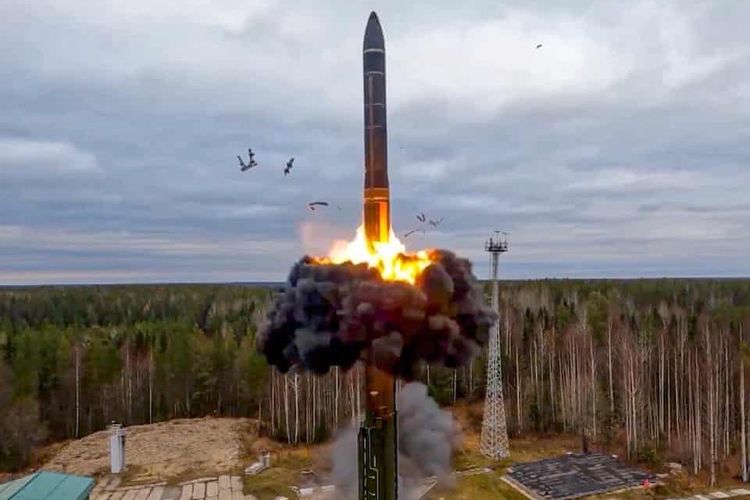Environmental Activist Mark Lynas: Nuclear War Could Erase Civilization in Hours, Far Deadlier than the Climate Crisis

For the past two decades, British author and environmental activist, Mark Lynas, has been known as one of the most vocal voices in the campaign to reduce carbon emissions to address the climate crisis.
However, after conducting in-depth research for three years, Lynas has now shifted its warning focus: the biggest threat to human survival is not climate change, but rather global nuclear war.
According to The Guardian on Monday (June 16, 2025), Lynas emphasized that the potential destruction from a nuclear war is far quicker and uncontrollable compared to the climate crisis. "There is no adaptation option for nuclear war," said Lynas. He referred to the phenomenon of nuclear winter—a global condition of extreme cold caused by smoke and soot from nuclear explosions blocking out sunlight.
"Nuclear winter will kill almost the entire human population. There is nothing that can be done to prepare, and there is nothing that can be done to adapt when it happens—because it all unfolds within hours," Lynas emphasized, underlining the fatal impact of nuclear war.
The threat mentioned by Lynas is not just speculation. Around 4,000 nuclear warheads are currently on alert in the northern hemisphere, ready for a first strike. If launched, the explosive and fire power is estimated to be able to kill up to 700 million people instantly. But that's just the beginning. Ash and soot from city fires will form dark clouds in the stratosphere, blocking out sunlight, eliminating photosynthesis, and plunging the Earth into a 'nuclear winter' for years.
City burning is a mechanism that causes nuclear winter," Lynas said. "Soot is pushed into the stratosphere by pyrocumulonimbus clouds—thunderstorm clouds resulting from fires—and because of its dark color, the soot absorbs sunlight, rises higher, and cannot come back down due to the lack of rain there.
With surface temperatures dropping drastically below zero and no harvests, human life would perish before Earth's conditions recover. "There will be no more harvest for humanity. Food will never grow again. Because when the sun returns and temperatures rise, it will be too late—all people will have died," Lynas said.
The possibility of this scenario is not science fiction. Lynas reminds us that history records moments when the world was nearly dragged into nuclear war, either due to technical errors or political escalation. For example, the United States has a first-strike doctrine and it only takes six minutes for the president to decide to launch a missile if the early warning system detects a threat. On the other hand, Russia is said to have a "dead hand" system that will automatically launch missiles if its command center is incapacitated.
Now, nine countries possess nuclear weapons: the US, Russia, China, France, the UK, Israel, India, Pakistan, and North Korea. Iran, following last week's attack by Israel, is reportedly getting closer to the threshold of making nuclear weapons. China itself has around 500 warheads as of 2024, while the US and Russia collectively control more than 12,000 nuclear warheads.
Lynas urges for a renewed global anti-nuclear movement on par with the current climate campaigns. He acknowledges that past peace movements were highly dedicated, but believes their approach was too narrow politically. "The movement was very left-wing, very hippie, and much of the space was reserved for women. This made those in the center or right of the political spectrum feel uncomfortable," he said. As a result, its success was limited.
Different from the views of traditional nuclear activists, Lynas does not support unilateral disarmament. On the contrary, he sees nuclear energy as one of the potential solutions to the climate crisis. One of his most controversial proposals is to classify all leaders and command chains in nuclear-armed countries as potential war criminals. According to him, they should be subject to legal sanctions in countries that refuse to possess nuclear weapons.
As a conclusion, Lynas warns that the world no longer has time to ignore the nuclear threat. With the possibility of total destruction in a matter of hours and the absence of survival options, she emphasizes that this risk is "the greatest existential risk currently faced by humanity."
***
Comments
Post a Comment